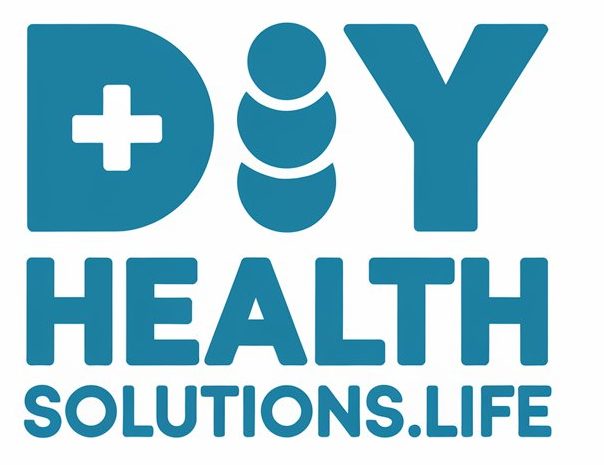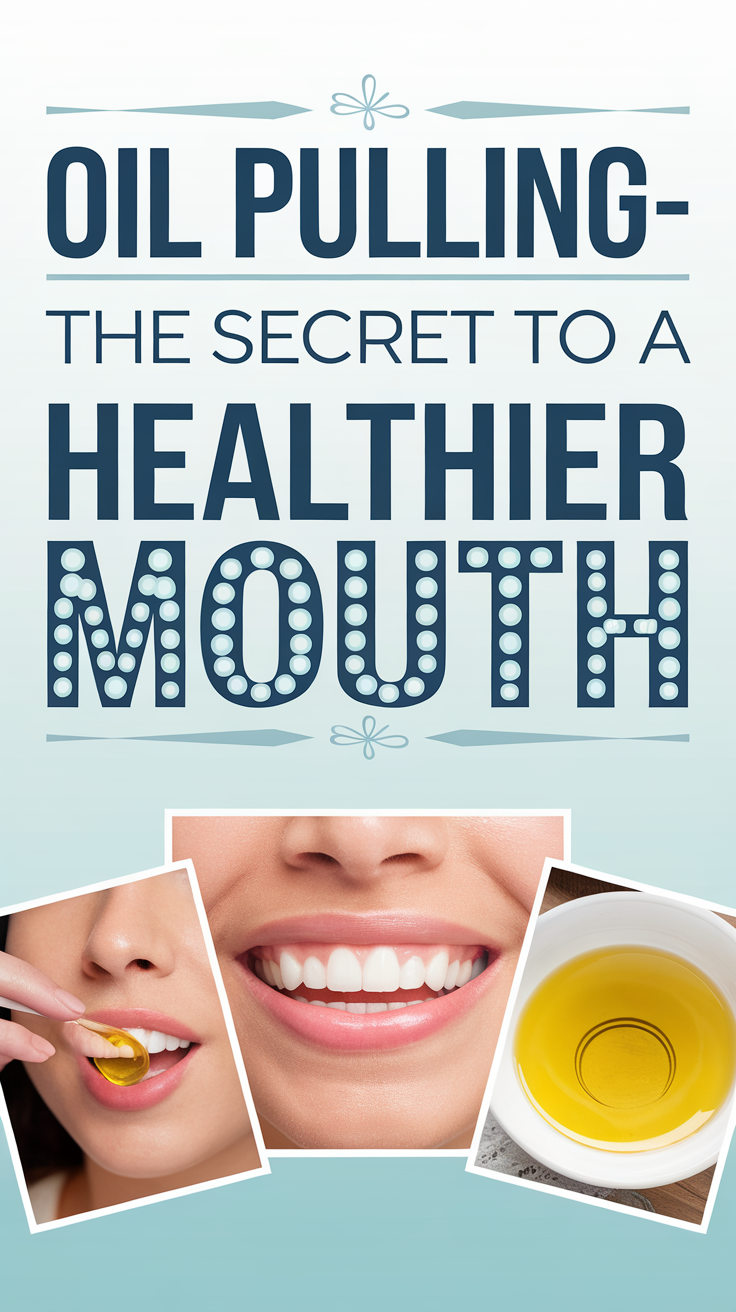Oil Pulling- The Secret to a Healthier Mouth
Oil pulling is an ancient practice that can really boost your oral health by swishing oil in your mouth for 10-20 minutes. Common oils like coconut and sesame are great choices, as they reduce harmful bacteria and plaque. This method not only promotes healthier gums but also freshens your breath and may even whiten your teeth over time. Just remember to spit out the oil and brush your teeth afterward for optimal results. It’s an easy addition to your routine that can significantly improve your mouth’s health. Want to discover more tips and techniques for oil pulling?
What Is Oil Pulling?
Oil pulling is an ancient oral health practice that involves swishing oil in your mouth for several minutes. You typically use oils like coconut, sesame, or sunflower, which are believed to help cleanse your mouth and promote dental health. The process is simple: take about a tablespoon of your chosen oil, place it in your mouth, and swish it around for 10 to 20 minutes. While you’re doing this, the oil traps bacteria, food particles, and toxins, helping to keep your mouth clean.
It’s essential to avoid swallowing the oil, as it collects harmful substances. After you’re done, spit the oil into a trash can—never down the sink, as it can clog your plumbing. Rinse your mouth thoroughly with water, and then brush your teeth as you normally would. Many people find that incorporating oil pulling into their daily routine is manageable, especially since it can be done while you’re getting ready in the morning or relaxing at home. This practice isn’t a replacement for traditional oral hygiene methods like brushing and flossing, but it might be a beneficial addition to your overall oral care regimen.
Benefits of Oil Pulling
While many people are skeptical about alternative health practices, the benefits of oil pulling can be quite compelling. This ancient Ayurvedic practice involves swishing oil in your mouth for about 15-20 minutes, and many who try it report noticeable improvements in oral health.
One of the most significant benefits you might experience is reduced plaque buildup. Oil pulling can help eliminate harmful bacteria, leading to healthier gums and fresher breath. You may also find that it can whiten your teeth naturally over time, giving you a brighter smile without the need for harsh chemicals.
Additionally, some people report a decrease in tooth sensitivity after incorporating oil pulling into their routine. This practice might even alleviate some symptoms of gum disease, promoting overall oral well-being.
Beyond dental health, oil pulling may offer systemic benefits, as it’s believed to support detoxification in the body. By pulling toxins from your mouth, you could improve your overall health.
Incorporating oil pulling into your daily routine could be a simple yet effective way to enhance your oral hygiene and contribute to a healthier mouth.
How to Oil Pull Correctly
To experience the benefits of oil pulling, it’s important to understand the correct technique. Start by choosing a high-quality oil, such as coconut or sesame oil. Take about one tablespoon of the oil and place it in your mouth.
Swish the oil around your mouth for 15-20 minutes, ensuring it reaches all areas, including between your teeth. Don’t swallow the oil, as it will contain toxins and bacteria. After the time is up, spit the oil into a trash can—this prevents clogging your sink. Rinse your mouth thoroughly with water and brush your teeth afterward for a clean finish.
Here’s a quick reference table to help you remember the steps:
| Step | Description |
|---|---|
| 1. Choose Oil | Select coconut, sesame, or sunflower oil |
| 2. Measure Oil | Take one tablespoon of the chosen oil |
| 3. Swish | Swish for 15-20 minutes |
| 4. Dispose & Rinse | Spit into trash, rinse with water |
Following these steps consistently will help you incorporate oil pulling into your oral hygiene routine effectively. Enjoy a healthier mouth!
Scientific Evidence Behind Oil Pulling
Research into the benefits of oil pulling has sparked interest among dental professionals and health enthusiasts alike. Several studies indicate that oil pulling can effectively reduce harmful bacteria in your mouth, leading to improved oral health. For instance, a study published in the Journal of Clinical and Diagnostic Research found that oil pulling significantly decreased Streptococcus mutans levels, a major contributor to tooth decay.
Moreover, you may find that oil pulling can help reduce plaque and gingivitis. A randomized controlled trial demonstrated that participants who practiced oil pulling experienced a notable reduction in plaque scores compared to those who didn’t. This suggests that incorporating oil pulling into your routine can be beneficial in maintaining gum health.
While more extensive research is needed to fully understand the extent of its benefits, existing studies provide a promising glimpse into oil pulling’s potential. It’s important to remember that oil pulling shouldn’t replace regular dental hygiene practices like brushing and flossing but can complement them. By integrating oil pulling into your oral care routine, you might just enhance your overall dental health and achieve a brighter, healthier smile.
Choosing the Right Oil
When it comes to oil pulling, selecting the right oil can make a significant difference in your experience and results. The oil you choose impacts not only the effectiveness of the practice but also how enjoyable it is for you. Here are some popular options to consider:
-
Coconut Oil: Known for its pleasant taste and antimicrobial properties, coconut oil is a favorite among beginners. Its lauric acid content helps fight harmful bacteria in your mouth.
-
Sesame Oil: A traditional choice, sesame oil has a nutty flavor and is rich in antioxidants. It’s often recommended for its soothing effects on the gums.
-
Sunflower Oil: This mild-tasting oil is another excellent option. It’s high in vitamin E, which can promote overall oral health.
-
Olive Oil: If you prefer a more robust flavor, extra virgin olive oil is a great choice. It contains healthy fats and has anti-inflammatory properties.
Experiment with these oils to find the one you enjoy most, as this will encourage you to stick with the routine. Remember, the right oil can enhance your oil pulling experience and contribute to a healthier mouth.
Additional Tips for Oral Health
Finding the right oil for oil pulling is just one part of maintaining a healthy mouth. To enhance your oral health, consider incorporating a few additional habits into your routine. First, brush your teeth twice a day with fluoride toothpaste. This helps remove plaque and prevents cavities. Don’t forget to replace your toothbrush every three to four months to ensure effective cleaning.
Flossing daily is another essential step. It removes food particles and plaque from between your teeth, where your toothbrush can’t reach. You might also want to use an antibacterial mouthwash to help reduce bacteria and freshen your breath.
Stay hydrated throughout the day; drinking plenty of water keeps your mouth moist and helps wash away food particles and bacteria. Additionally, maintaining a balanced diet rich in vitamins and minerals supports your gums and teeth. Try reducing sugary snacks, as sugar promotes tooth decay.
Regular dental check-ups are crucial too. Schedule visits every six months for professional cleanings and check-ups. Taking these steps, along with oil pulling, will empower you to achieve a healthier mouth. Remember, consistency is key to lasting oral health!
Frequently Asked Questions
Can Children Practice Oil Pulling Safely?
Yes, children can practice oil pulling safely, but it’s essential to supervise them. Make sure they’re old enough to spit out the oil and understand not to swallow it to avoid any potential risks.
How Often Should I Oil Pull Each Week?
You should oil pull about three to five times a week for optimal benefits. Listen to your body; if you feel comfortable, increase the frequency, but don’t overdo it to avoid any discomfort.
Is Oil Pulling Safe During Pregnancy?
You should consult your healthcare provider before starting oil pulling during pregnancy. While it’s generally considered safe, individual circumstances may vary, and your doctor can provide personalized advice to ensure both you and your baby stay healthy.
Can I Swallow the Oil After Pulling?
You shouldn’t swallow the oil after pulling. It contains bacteria and toxins that you’ve drawn out of your mouth. Spitting it out ensures you keep your mouth clean and healthy. Always rinse thoroughly afterward.
Does Oil Pulling Replace Regular Dental Hygiene?
No, oil pulling doesn’t replace regular dental hygiene. You still need to brush and floss daily. It can be a supplement to your routine, but it can’t substitute for professional care and proper cleaning methods.

